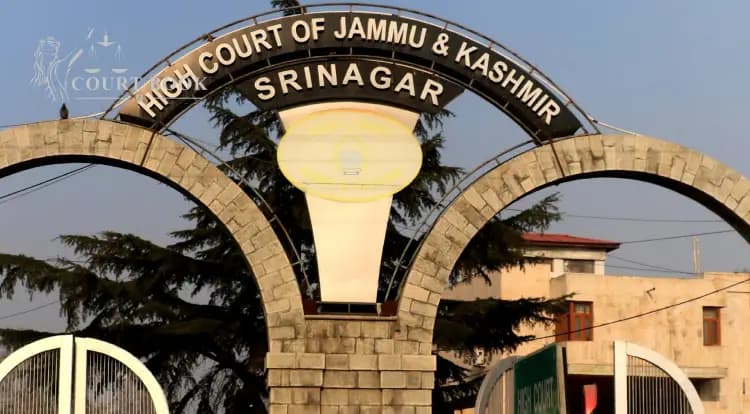The Jammu & Kashmir and Ladakh High Court recently upheld the acquittal of two individuals charged under Section 8/15 of the Narcotic Drugs and Psychotropic Substances (NDPS) Act, citing multiple investigation lapses by the prosecution. The case revolved around the seizure of poppy straw from an oil tanker, but significant issues—such as missing samples, contradictions in witness accounts, and failure to show safe custody of seized items—ultimately led to the accused being let off.
Read also: J&K High Court: Able-Bodied Adult Daughters Not Entitled to Maintenance from Father
Background of the Case
The case dates back to February 18, 2010, when a police Naka party at Batote intercepted an oil tanker traveling from Srinagar to Jammu. Upon checking, they allegedly discovered 18 bags of poppy straw hidden in the central chamber of the vehicle.
The occupants—Gurmeet Singh (driver) and Rajvinder Singh (conductor)—were taken into custody. Following the recovery, Sub-Inspector Maqsood Ahmad dispatched a docket to the police station through Constable Abdul Rashid. An FIR under Section 8/15 of the NDPS Act was registered at Police Station Batote.
Read also: Jammu & Kashmir Apni Party Moves Supreme Court Against Waqf Amendment Act, 2025
Inspector Ghulam Nabi Mir led the investigation and claimed to have taken one sample from each of the 18 seized bags, later resealed by Naib Tehsildar Abdul Rashid Rather, and sent to the Forensic Science Laboratory (FSL) for analysis.
The trial was held before the Sessions Judge, Ramban, who framed charges against both accused. During the trial, the prosecution presented nine witnesses, including police officers, a forensic expert, and the executive magistrate.
However, the trial court found significant gaps in the prosecution’s case:
- Lack of clarity on sample count: Although 18 samples were allegedly taken, only 9 samples were received by the FSL. The court observed, “It remains to be explained as to where the other 09 samples have gone. The I/O is silent on the issue.”
- Non-recording of key witness statements: The police failed to record statements of two labourers who had assisted in loading the seized bags. The High Court noted, “These labourers were crucial independent witnesses, yet their testimonies were not collected.”
- Failure to prove safe custody: It was claimed that samples were deposited in the Malkhana (police evidence room), but no record or register was produced. The executive magistrate resealed the samples the next day instead of doing it on the spot—despite being present at the scene. The court remarked: “The safe custody of the samples has been put in serious doubt. The Malkhana register, if produced and proved, would have indicated the day and time of the deposit of the samples as also the day and time of taking out of the samples.”
- Delayed resealing of samples: The executive magistrate resealed the samples in his office a day later, although he was on the spot during the seizure. The delay raised further suspicion about tampering and chain of custody.
The Union Territory of Jammu & Kashmir challenged the acquittal, arguing that the seizure was properly conducted, and the evidence was sufficient for conviction. However, a division bench of Justice Sanjeev Kumar and Justice Puneet Gupta dismissed the appeal, holding that the prosecution had “miserably failed” to establish guilt beyond a reasonable doubt.
In its oral order dated April 3, 2025, the High Court stated:
“The evidence on record does not connect the respondents with the commission of the offence. The prosecution has failed to prove its case by leading any cogent and credible evidence.”
The Court emphasized that the prosecution's failure to prove safe custody and address contradictions and missing elements in evidence made the trial court’s acquittal fully justified.
In dismissing the appeal, the Court made the following key observations:
- The chain of custody of contraband was not maintained.
- Independent witnesses were available but not examined.
- There was no documentary evidence from the Malkhana to establish that the samples were stored and later retrieved as claimed.
Concluding the matter, the Court stated:
“The manner in which the prosecution has been conducted leaves us with no option but to accept the view taken by the trial Court.”
APPEARANCE:
P.D Singh, Dy. A.G, Advocate for Petitioner
A.K Shan, Advocate For Respondents
Case-title: State of Jammu and Kashmir vs Gurmeet Singh and Anr, 2025













